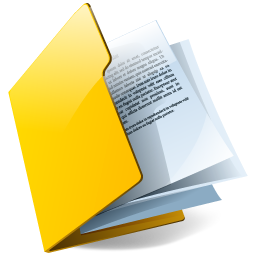History
CBSE class 12 History includes PDF files, tests, question papers, videos and NCERT solutions. Class 12 History test book The themes of Indian History has three parts. It includes The Harappan Civilization, Early States and Economies, Early Societies, Cultural Developments, Perceptions of Society, Changes in Religious Beliefs and Devotional Texts, Vijaynagara, Agrarian Society and the Mughal Empire, The Mughal Courts, Exploring Official Archives, 1857 Revolt and its Representations, Urbanisation, Planning and Architecture, Civil Disobedience and Beyond, Politics, Memories, Experiences, The Beginning of a New Era.

CBSE, JEE, NEET, CUET
Question Bank, Mock Tests, Exam Papers
NCERT Solutions, Sample Papers, Notes, Videos

myCBSEguide App
Complete Guide for CBSE Students
NCERT Solutions, NCERT Exemplars, Revison Notes, Free Videos, CBSE Papers, MCQ Tests & more.
Download CBSE class 12 History study material in PDF format. MyCBSEguide provides solved papers, board question papers, revision notes and NCERT solutions for CBSE class 12 History. The topics included are The Harappan Civilization, Early States and Economies, Early Societies, Cultural Developments, Perceptions of Society, Changes in Religious Beliefs and Devotional Texts, Vijaynagara, Agrarian Society and the Mughal Empire, The Mughal Courts, Exploring Official Archives, 1857 Revolt and its Representations, Urbanisation, Planning and Architecture, Civil Disobedience and Beyond, Politics, Memories, Experiences, The Beginning of a New Era.
Class XII: Themes in Indian History
PART - I
1. The Story of the First Cities: Harappan Archaeology. (13)
Broad overview: Early urban centres.
Story of discovery: Harappan civilization
Excerpt: Archaeological report on a majorsite.
Discussion: How it has been utilized by archaeologists/historians.
2. Political and Economic History: How Inscriptions tell a story. (14)
Broad overview: Political and economichistory from the Mauryan to the Gupta period.
Story of discovery: Inscriptions and the decipherment of the script. Shifts in the understanding of political and economichistory.
Excerpt: Asokan inscription and Gupta periodland grant.
Discussion: Interpretation of inscriptions by historians.
3. Social Histories: Using the Mahabharata (14)
Broad overview: Issues in social history,including caste, class, kinship and gender.
Story of discovery: Transmission andpublications of the Mahabharata.
Excerpt: from the Mahabharata, illustratinghow it has been used by historians.
Discussion: Other sources for reconstructing social history.
4. A History of Buddhism: Sanchi Stupa (14)
Broad overview:
(a) A brief review of religious histories of Vedic religion, Jainism, Vaisnavism, Saivism.
(b) Focus on Buddhism.
Story of discovery: Sanchi stupa
Excerpt: Reproduction of sculptures fromSanchi.
Discussion: Ways in which sculpture has been interpreted by historians, other sources for reconstructing the history of Buddhism.
PART-II
5. Agrarian Relations: The Ain-i- Akbari (13)
Broad overview:
(a) Structure of agrarian relations in the 16thand 17th centuries.
(b) Patterns of change over the period.
Story of Discovery: Account of thecompilation and translation of Ain-i-Akbari.
Excerpt: from the Ain-i-Akbari
Discussion: Ways in which historians have used the text to reconstruct history.
6. The Mughal Court: Reconstructing Histories through Chronicles (13)
Broad overview:
(a) Outline of political history 15th-17thcenturies.
(b) Discussion of the Mughal court andpolitics.
Story of Discovery: Account of the productionof court chronicles, and their subsequenttranslation and transmission.
Excerpts: from the Akbarnama andPadshahnama.
Discussion: Ways in which historians have used the texts to reconstruct political histories.
7. New Architecture: Hampi (13)
Broad overview:
(a) Outline of new buildings during Vijaya nagar period-temples, forts, irrigation facilities.
(b) Relationship between architecture and the political system.
Story of Discovery: Account of how Hampiwas found.
Excerpt: Visuals of buildings at Hampi
Discussion: Ways in which historians haveanalyzed and interpreted these structures.
8. Religious Histories: The Bhakti-Sufi Tradition (13)
Broad overview:
(a) Outline of religious developments duringthis period.
(b) Ideas and practices of the Bhakti-Sufisaints.
Story of Transmission: How Bhakti-Sufi compositions have been preserved.
Excerpt: Extracts from selected Bhakti-Sufiworks.
Discussion: Ways in which these have been interpreted by historians.
9. Medieval Society through Travelers' Accounts (13)
Broad overview: Outline of social and cultural life as theyappear in travelers' accounts.
Story of their writings: A discussion of wherethey travelled, why they travelled, what theywrote, and for whom they wrote.
Excerpts: from Alberuni, Ibn Batuta, Bernier.
Discussion: What these travel accounts cantell us and how they have been interpreted byhistorians.
PART - III ( Periods 80)
10. Colonialism and Rural Society: Evidence from Official Reports (13)
Broad overview:
(a) Life of zamindars, peasants and artisans inthe late 18th century
(b) East India Company, revenue settlementsand surveys.
(c) Changes over the nineteenth century.
Story of official records: An account of whyofficial investigations into rural societies wereundertaken and the types of records andreports produced.
Excerpts: From Firminger's Fifth Report,Accounts of Frances Buchanan-Hamilton, andDeccan Riots Report.
Discussion: What the official records tell anddo not tell, and how they have been used byhistorians.
11. Representations of 1857 (13)
Broad overview:
(a) The events of 1857-58.
(b) How these events were recorded andnarrated.
Focus: Lucknow.
Excerpts: Pictures of 1857. Extracts from contemporary accounts.
Discussion: How the pictures of 1857 shaped British opinion of what had happened.
12. Colonialism and Indian Towns: Town Plans and Municipal Reports (13)
Broad overview: The growth of Mumbai,Chennai, hill stations and cantonments in the18th and 19th centuries.
Excerpts: Photographs and paintings. Plans of cities. Extract from town plan reports. Focuson Kolkata town planning.
Discussion: How the above sources can beused to reconstruct the history of towns. Whatthese sources do not reveal.
13. Mahatma Gandhi through Contemporary Eyes(13)
Broad overview:
(a) The Nationalist Movement 1918 - 48.
(b) The nature of Gandhian politics andleadership.
Focus: Mahatma Gandhi in 1931.
Excerpts: Reports from English and Indian language newspapers and other contemporary writings.
Discussion: How newspapers can be a source of history.
14. Partition through Oral Sources (14)
Broad overview:
(a) The history of the 1940s.
(b) Nationalism, Communalism and Partition.Focus: Punjab and Bengal.
Excerpts: Oral testimonies of those whoexperienced partition.
Discussion: Ways in which these have been analyzed to reconstruct the history of theevent.
15. The Making of the Constitution (14)
Broad overview:
(a) Independence and the new nation state.
(b) The making of the Constitution.
Focus: The Constitutional Assembly debates.
Excerpts: from the debates.
Discussion: What such debates reveal and how they can be analyzed.
16. Map Work on Units 1-15 (10)
17. Project Work (10 periods)
Please refer Circular for project work guidelines.
Project work will help students:
- To develop skill to gather data from a variety of sources, investigate diverse viewpoints andarrive at logical deductions.
- To develop skill to comprehend, analyze, interpret, evaluate historical evidence and understandthe limitation of historical evidence.
- To develop 21st century managerial skills of co-ordination, self-direction and time management.
- To learn to work on diverse cultures, races, religions and lifestyles.
- To learn through constructivism-a theory based on observation and scientific study.
- To inculcate a spirit of inquiry and research.
- To communicate data in the most appropriate form using a variety of techniques.
- To provide greater opportunity for interaction and exploration.
- To understand contemporary issues in context to our past.
- To develop a global perspective and an international outlook.
- To grow into caring, sensitive individuals capable of making informed, intelligent andindependent choices.
- To develop lasting interest in history discipline.

myCBSEguide
Trusted by 1 Crore+ Students

Test Generator
Create papers online. It's FREE.

CUET Mock Tests
75,000+ questions to practice only on myCBSEguide app
 myCBSEguide
myCBSEguide







